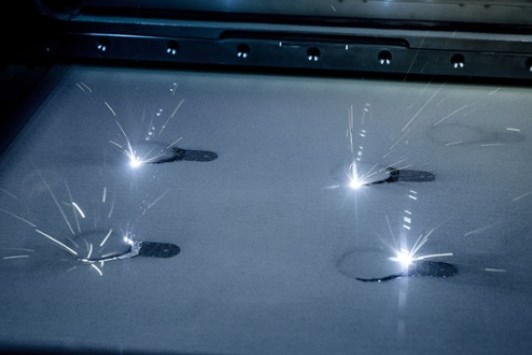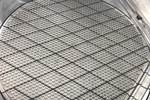EOS, Texas A&M University Offer AM Professional Development Program
Successful additive manufacturing pilot training program for NASA Johnson Space Center leads to new collaborative offering to business and academia.

Photo Credit: Texas A&M University
EOS North America (Novi, Michigan) a technology supplier in the field of industrial 3D printing (additive manufacturing, AM) of metals and polymers, reported on Oct. 20 that it has partnered with Texas A&M University (College Station) to provide a professional development program for AM. Using a combination of virtual learning with conventional training methods, EOS and Texas A&M University’s AM training program is said to offer a hands-on, expert-led training program to meet evolving industry needs and challenges.
In concert with EOS’ applied engineering group, Additive Minds, the Texas A&M Engineering Experiment Station program provides participants with a deep dive into the latest powder bed AM processes, such as Direct Metal Laser Solidification (DMLS) and Selective Laser Sintering (SLS), as well as an understanding of other AM processes, metal and polymer materials for AM, design for AM, case studies, best practices, troubleshooting and more. The program was delivered by subject matter experts from Texas A&M University (Dr. Alaa Elwany, associate professor of industrial and systems engineering and director of the metal AM laboratory) and EOS’ Additive Minds Consultants Maryna Ienina and Dr. David Krzeminski.
“Additive manufacturing is a highly innovative technology that, if understood and applied correctly, can create countless new opportunities for any industry or organization,” says Dr. Greg Hayes, senior vice president of applied engineering at EOS North America, “By partnering with Texas A&M University to create a certificate-level training program, we are putting AM’s potential in the hands of our participants.”
The partnership, according to both university and EOS, recently completed its first successful session with NASA. The program’s open discussion, instructor interaction and enthusiasm, presentation of specific case studies and tools and mixture of both “theoretical” and “practical” approaches were among the top highlights noted by participants.
“Our partnership with EOS and the Additive Minds team has allowed us to create an industry-leading additive manufacturing training course that offers practical advice for those with the most basic understanding of AM, to those with expert-level knowledge interested in keeping up-to-date with the most forward-looking AM methods and materials,” adds Rob Gorham, executive director of manufacturing initiatives at Texas A&M University, “We’re thrilled to be offering this program to the North American workforce.”
According to Dr. Alaa Elwany, the partnership has trained many professionals from the U.S. Department of Energy (DOE), Department of Defense (DOD), in addition to industrial professionals the program launch in 2018. “We are committed to be one of the nation’s hubs for training the U.S. advanced manufacturing workforce. Partnering with EOS’ Additive Minds represents a unique opportunity and will add incredible value to future participants.”
For more information on EOS and Texas A&M University’s joint additive manufacturing professional development program and to find out how your organization can participate, visit the program website, available here.
Related Content
-
Large Hybrid Steel Insert Solves Deformation, Dimensionality, Cycle Time Problems
DMLS printers using metal additive powders selected by Linear AMS to produce high-quality, accurate, consistent 3D-printed mold components with certification and traceability.
-
The Connector Conundrum: 3D Printed Mold Tooling’s Role in Innovation
ReelView Fishing faced an electronics obstacle in the development of its new technology for underwater video. Additive manufacturing for moldmaking enabled the speed necessary to iterate to a solution.
-
In "Hybrid" FIM Process, 3D Printing Complements Injection Molding
Alpine Advanced Materials used a desktop 3D printer and the freeform injection molding process to reduce prototype tooling production time and cost for its customers.















